“What I loved reading in 2016”
The Daily Star asked eminent writers, intellectuals, activists and cultural figures of the country what books they read and loved in 2016. The answers we received varied across writers from all genres and countries. Here's what they had to say.
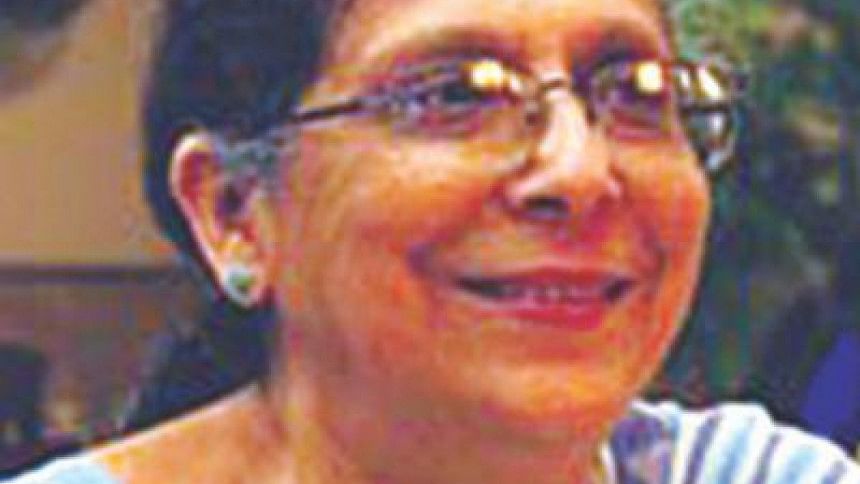
NIAZ ZAMAN
Author, Editor & Supernumerary Professor at the University of Dhaka
Geraldine Brooks' People of the Book (Penguin) was inspired by the Sarajevo Haggadah, a Hebrew codex, which was saved from the Nazis by a Muslim librarian. A fictional account of the many people – Jewish, Christian, and Muslim – involved with the codex, it is a reflection on the political and religious conflicts of the past and the present as well as a mystery story. What do the fragments of a butterfly wing, a white hair, wine stains and salt crystals reveal about its history and the many persons who handled it?
Zeeshan Khan's Right to Passage: Travels through India, Pakistan and Iran (Sage) is about the writer's journey across the subcontinent to Iran. Merging past and present, historical narrative and vivid description, philosophical musings and more than a touch of humour, the book wafted me to many places that had only been names. It reminded me of the rich cultural, culinary, linguistic and religious heritage that we share but also that, while one can watch the ceremonies at Attari, one has to go back to Delhi to take a plane to Lahore.
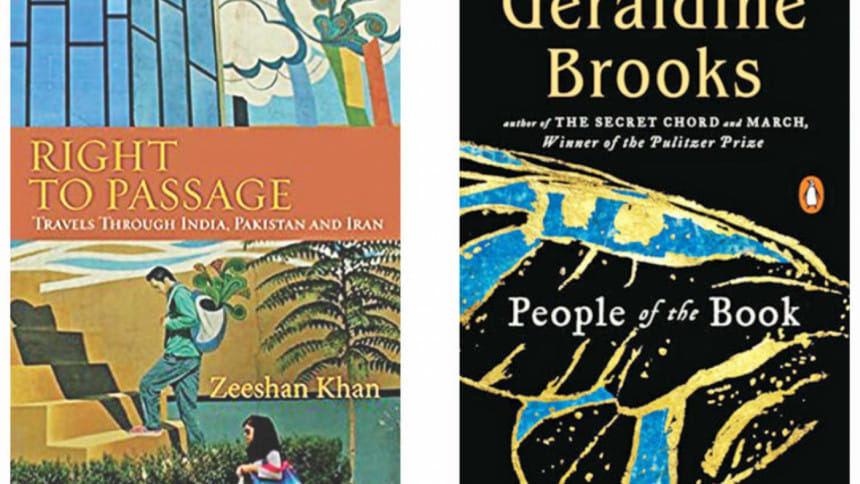
KAISER HAQ
Poet, translator, essayist, critic and academic

Second-Hand Time by Svetlana Alexievich
Hangover Square by Patrick Hamilton
REBECCA HAQUE
Professor of English, University of Dhaka
Of the many books of several genres -- fiction, non-fiction, criticism, biography and memoir -- that I read during the past twelve months, only one book, a novel, was published in 2016. Hilary Standing's The Inheritance Powder (UPL: Dhaka, 2016) was formally launched at the Dhaka Literary Festival in November 2016. I was very impressed by this first work of fiction by an academic, who has a doctorate in social anthropology and has worked extensively in Bangladesh, Nepal, and India in the development sector.
Hilary Standing writes about the slow arsenic poisoning of millions of rural people of Bangladesh, and what impressed me especially was the extent to which the writer has identified with ordinary Bangali men and women. The subtle, sensitive sketches of the major and minor characters reveal the author's keen insight into human psychology and individual motivation. The description of Dhaka, with its marked rich-poor divide and its obvious hypocrisy, is so honest and graphic that to me it felt like a blow to the head telling me to wake up and be more pro-active in improving the social condition of the marginalised.
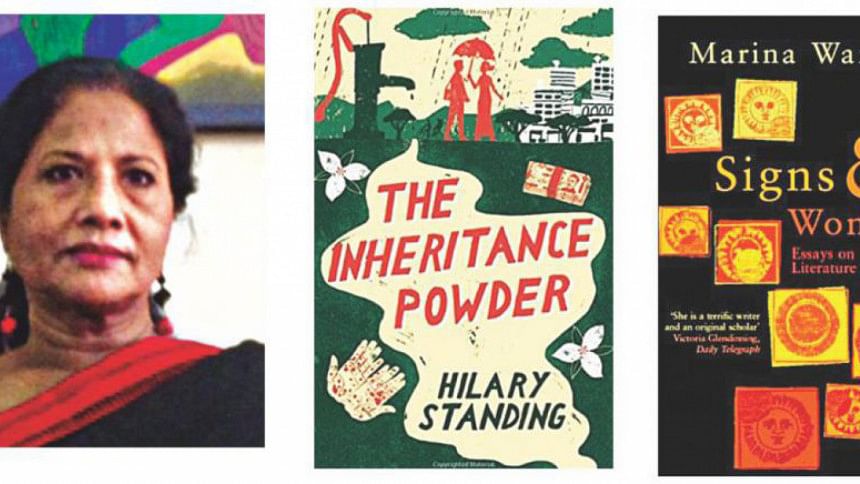
Marina Warner's Signs & Wonders: Essays On Literature & Culture (Vintage: 2004, pbk., pp. 516) is a book I bought in 2015 and have been dipping into occasionally, savouring the rich variety of critical essays on subjects ranging from myths and fairytales to Shakespeare, from words and symbols to magic, faiths, and marvels. Some essays on specific works or historical periods, genres or cultural trends are long and insightful, while pithy journalistic comments on contemporary writers are highly original and both entertaining and edifying. Warner is a critic, historian and a novelist, and this anthology is one book that has influenced me in my capacity as both academic and creative writer. I discovered Marina Warner a few years ago in the course of my research on Culture and the Female Imagination, and she has become a source of inspiration in as strong a manner as Camille Paglia had been for me throughout the 90s.
FAKRUL ALAM
Academic, writer, and translator
The Triumph of the Snake Goddess by Kaiser Haq
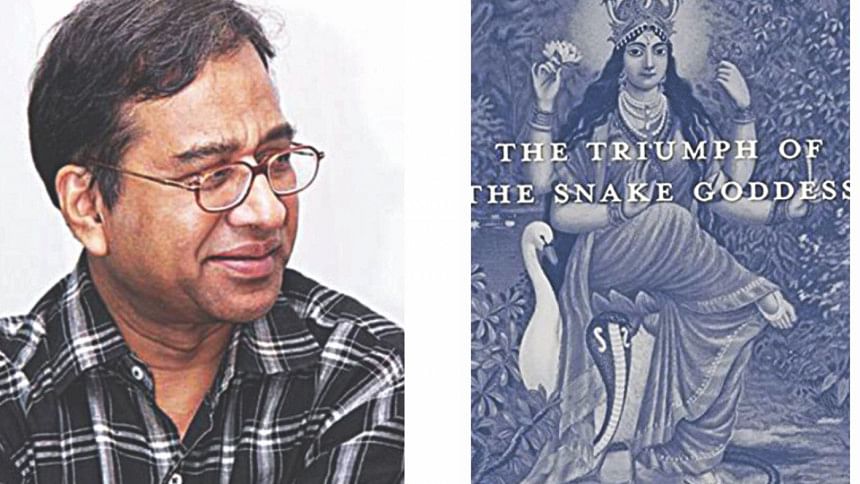
SYED MANZOORUL ISLAM
Academic, writer, novelist, translator, columnist, and critic
The book I liked most that was published in 2016 was Born to Run by Bruce Springsteen.
Ever since I heard Springsteen's first album Born to Run, which came out in 1974 I became a fan of him. He also performed with E Street Band and was called The Boss. I liked his powerful and resonant voice and his ability to transfer his passion to his audience. The book is a definitive memoir of the singer and tells his life history in a candid and powerful manner, recounting some epiphanic moments and events that shaped his life, like watching Elvis's fists appearance in Ed Sullivan Show which fired him up with the passion to perform.
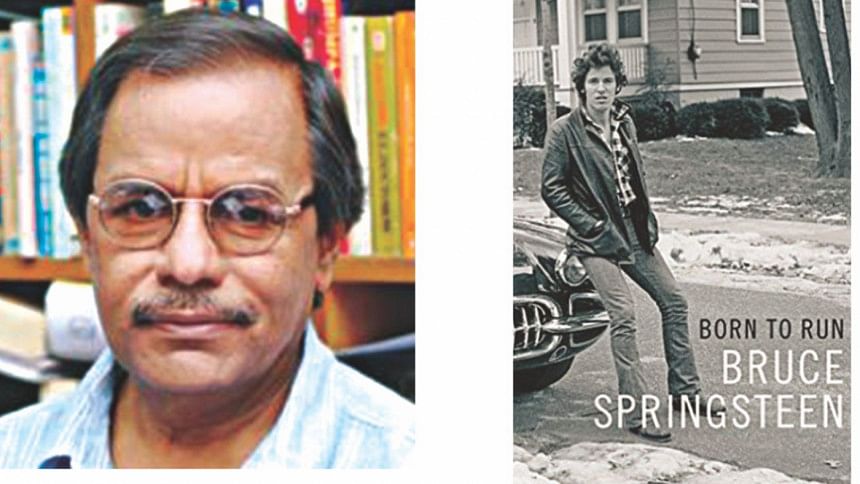
The other book is The Brief Wondrous Life of Oscar Wao by the Dominican novelist Minot Diaz which came out in 2007. Written in the magic realist tradition the novel is set in Paterson, New Jersey where Oscar, the overweight boy obsessed with science fiction and fantasy, while falling in love, grows, struggling under a family curse. Diaz uses the technique of multiple character narration and intertextuality and a generous blending of English and Spanish and many neologisms to weave a tale of colonialism, violence and difficult relationships.
AMITABH REZA
Filmmaker
The Great Derangement by Amitav Gosh
The First Muslim: The Story of Muhammad and After the Prophet: The Epic Story of the Shia-Sunni Split in Islam by Lesley Hazleton

KHUSHI KABIR
Human rights activist
What I enjoyed reading the most was A Handbook for My Lover written by Rosalyn D'Mello (Harper Collins, India). This book would definitely rate as the book that I enjoyed reading the most that was just recently published. I managed to get my copy as early as February 2016, and could not stop reading till the end.
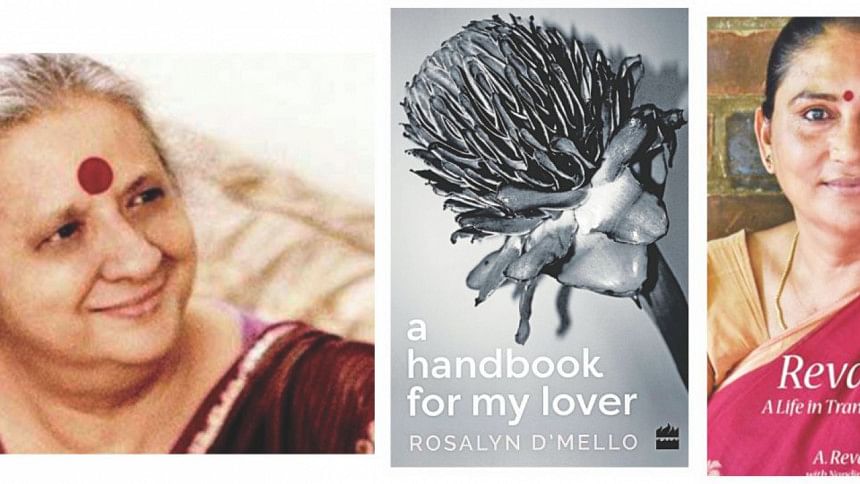
It was the most brutally honest, deeply reflective, unconventional and unpretentious book I read in 2016. The beauty of her language, her exquisitely crafted words, along with her control of language easily made it stand out.
Another book that actually came out in 2016, which I cannot state I enjoyed reading the most, but a book that left a mark on me and really sensitised and educated me in more ways than one, was A Life in Trans Activism by A. Revathi (Zubaan Books, New Delhi).
SONIA NISHAT AMIN
Professor of History, University of Dhaka
The best book (actually haunting) I read in 2016 but published in 2010 was Siddhartha Mukherjee's The Emperor of All Maladies: A Biography of Cancer.
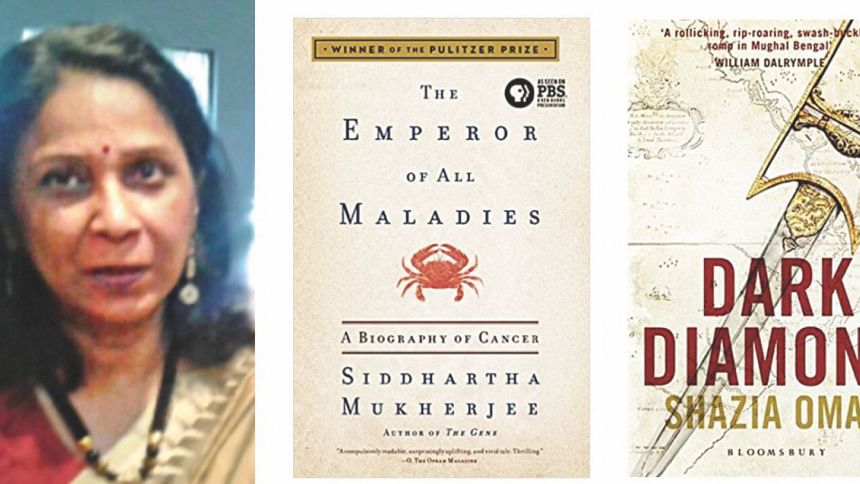
The best book published in 2016, from Delhi, that I enjoyed was Dark Diamond by Shazia Omar.
SADEKA HALIM
Professor of Sociology, University of Dhaka
Jatiyotabad, Shamprodaikota o Jonogoner Mukti by Serajul Islam Chowdhury
Jinnah: India Partition, Independence by Jaswant Singh
Jinnah of Pakistan by Stanley Wolpert
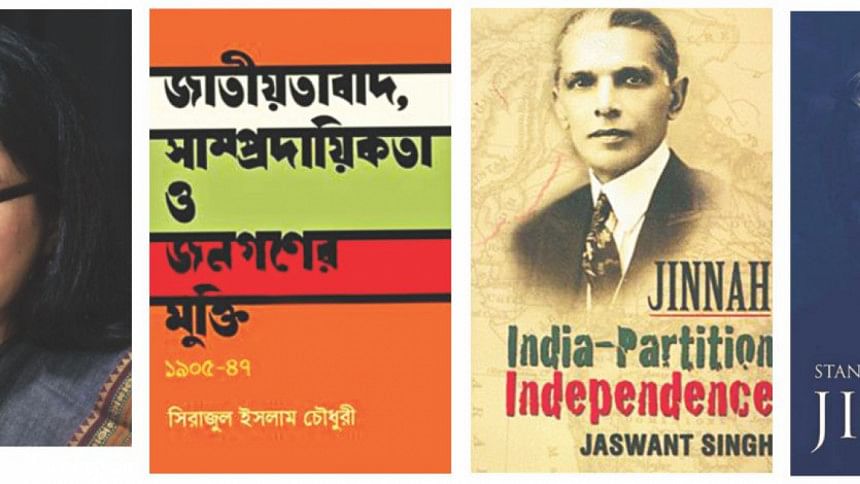
MILIA ALI
Rabindra Sangeet exponent
The 2016 publication that I found both enjoyable and educational is Hillbilly Elegy, a memoir by J.D. Vance. Vance describes his upbringing in the heartland of America in a family with a history of low paying, physical jobs that are fast disappearing. In telling his personal story he offers a compassionate sociological analysis of the white underclass that is responsible for the ascent of Donald Trump.

Although I did not see eye to eye with Vance on many issues, the book gave me an insider's view of the anger and discontent among the underprivileged white people who rather than blame themselves for their inability to adapt to the demands of globalisation hold the “Obama Economy” responsible for being trapped in a poverty cycle.
Americanah by Chimamanda Ngozi Adichie is a book that I am currently reading. I find it honest, funny and gripping. It is the story of a Nigerian woman who comes to America and is forced to grapple with what it means to be coloured. When after many years she returns to her native country she becomes 'Americanah' because she views her surroundings with “American eyes” It is a remarkable novel of race, identity and love that people, like me, who straddle two worlds (their native country and the United States) can relate to.
AMENA MOHSIN
Professor of International Relations, University of Dhaka
In 2016, I enjoyed re-reading Of the Nation Born: The Bangladesh Papers, Hameeda Hossain and Amena Mohsin (eds.), (Zubaan, New Delhi, 2016).
I think there are so many books that I have enjoyed reading, but I guess given the debates, I enjoyed, Religious Difference in a Secular Age: A Minority Report, by Saba Mahmood, (Princeton University Press, 2016).

ALI RIAZ
Professor and Chair of the Department of Politics and Government, Illinois State University
I enjoyed reading ISIS: A History by Fawaz A Gerges (Princeton University Press) and Islamic Exceptionalism: How the Struggle Over Islam Is Reshaping the World by Shadi Hamid (St. Martin's Press).
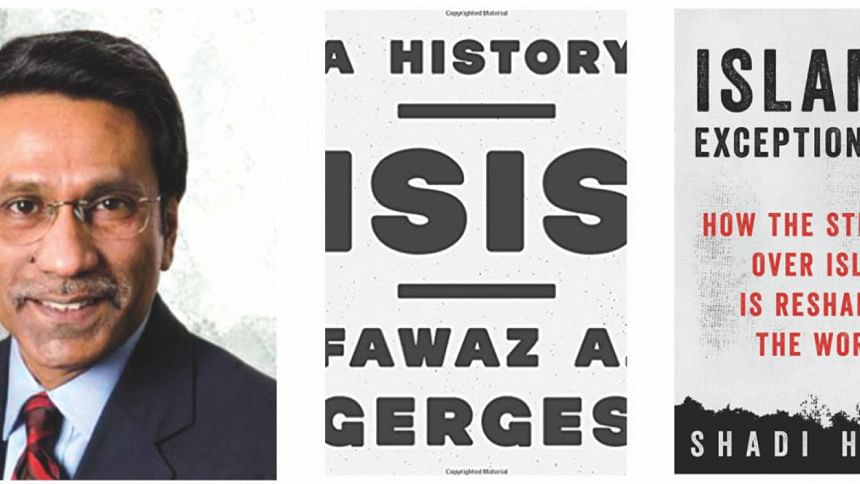
In some ways they complement each other as both authors are trying to untangle various strands of Islamist politics. These two books seem to approach the issue of Islamist politics from different vantage points. Gerges traces the genesis of ISIS and highlights the socio-political environment which engendered the rise of it, therefore his central point is that if the fundamental causes can be addressed the situation is reversible. Hamid takes a broader landscape and argues that whether the ISIS is defeated or not there is a need to address the issue of Islamist politics; he suggests that we need to shed our preconceived ideas with regard to Islam. He explains the relationship between Islamist politics and liberalism. He has challenged the common assumptions on Islam and its role in politics, and how religion as a social force is viewed.
MAHRUKH MOHIUDDIN
Director of Marketing, University Press Limited (UPL)
I loved Niruddesher Deshe by Neel Lohit (Sunil Gangopadhyay).
I absolutely loved how the storytelling transported me to a different reality. There are times even today when I close my eyes and try to breathe in the air of "Dikshunnopur". I know exactly what that air smells like.
I also loved Koyekti Bihbol Golpo by Shahaduzzaman.
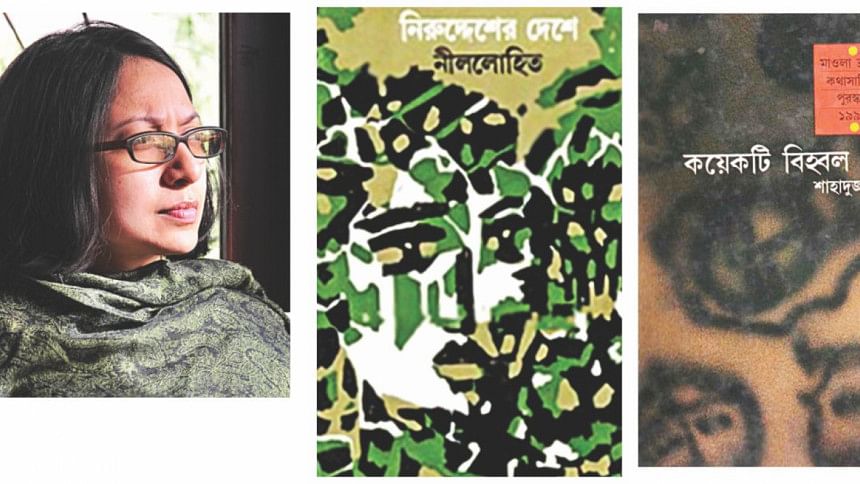
Shahaduzzaman's collection of short stories blew me away. I carry that slender book around. Each and every story connects me to something inexplicably powerful, deep within. Those who haven't read them need to dive into the stories to know what I mean!

 For all latest news, follow The Daily Star's Google News channel.
For all latest news, follow The Daily Star's Google News channel. 



Comments